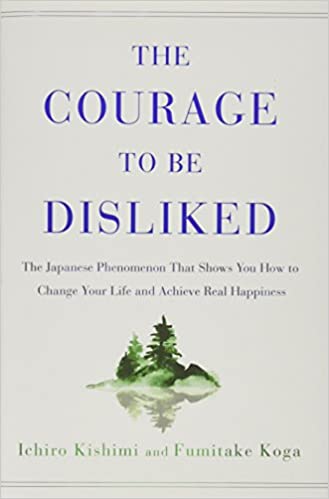About
Ichiro Kishimi’s personal development book The Courage to Be Disliked: How to Free Yourself, Change Your Life, and Achieve True Happiness was published in 2013. The book, which was translated into English from the original Japanese, encourages us to stop caring what other people think of us and instead embrace and liberate our true selves.
The book is well-known for its accessible content, which is based on the teachings of Alfred Adler, a nineteenth-century psychologist. Kishimi is a professor of educational and clinical psychology at Osaka’s Meiji School of Oriental Medicine and runs his own counseling practice in Kyoto.
Notable quotes
- “Do Not Live to Satisfy the Expectations of Others”
- “A healthy feeling of inferiority is not something that comes from comparing oneself to others; it comes from one’s comparison with one’s ideal self.”
- “The courage to be happy also includes the courage to be disliked. When you have gained that courage, your interpersonal relationships will all at once change into things of lightness.”
- “It’s that you are disliked by someone. It is proof that you are exercising your freedom and living in freedom and a sign that you are living in accordance with your own principles.”
- “If one really has a feeling of contribution, one will no longer have any need for recognition from others. Because one will already have the real awareness that “I am of use to someone,” without needing to go out of one’s way to be acknowledged by others. In other words, a person who is obsessed with the desire for recognition does not have any community feeling yet, and has not managed to engage in self-acceptance, confidence in others, or contribution to others.”
- “Your unhappiness cannot be blamed on your past or your environment. And it isn’t that you lack competence. You just lack courage. One might say you are lacking in the courage to be happy.”
- “We cannot alter objective facts. But subjective interpretations can be altered as much as one likes. And we are inhabitants of a subjective world.”
- “No experience is in itself a cause of our success or failure. We do not suffer from the shock of our experiences—the so-called trauma—but instead, we make out of them whatever suits our purposes. We are not determined by our experiences, but the meaning we give them is self-determining.”
- “No matter what has occurred in your life up to this point, it should have no bearing at all on how you live from now on.’ That you, living in the here and now, are the one who determines your own life.”
- “If one really has confidence in oneself, one doesn’t feel the need to boast. It’s because one’s feeling of inferiority is strong that one boasts. One feels the need to flaunt one’s superiority all the more. There’s the fear that if one doesn’t do that, not a single person will accept one “the way I am.” This is a full-blown superiority complex.”
- “Unless one is unconcerned by other people’s judgments, has no fear of being disliked by other people, and pays the cost that one might never be recognized, one will never be able to follow through in one’s own way of living. That is to say, one will not be able to be free.”
- “Your life is not something that someone gives you, but something you choose yourself, and you are the one who decides how you live.”
- “Three things are needed at this point: “self-acceptance,” “confidence in others,” and “contribution to others.”
- “One has to stand on one’s own two feet and take one’s own steps forward with the tasks of interpersonal relations. One needs to think not, What will this person give me? but rather, What can I give to this person? That is a commitment to the community.”
- “Why is it that people seek recognition from others? In many cases, it is due to the influence of reward-and-punishment education.”
- “Loneliness is having other people and society and community around you, and having a deep sense of being excluded from them.”
- “A way of living in which one is constantly troubled by how one is seen by others is a self-centered lifestyle in which one’s sole concern is with the “I.”
- “None of us live in an objective world, but instead in a subjective world that we ourselves have given meaning to. The world you see is different from the one I see, and it’s impossible to share your world with anyone else.”
- “You are the only one who can change yourself.”
- “The reason that so many people don’t really feel happy while they’re building up their success in the eyes of society is that they are living in competition.”
